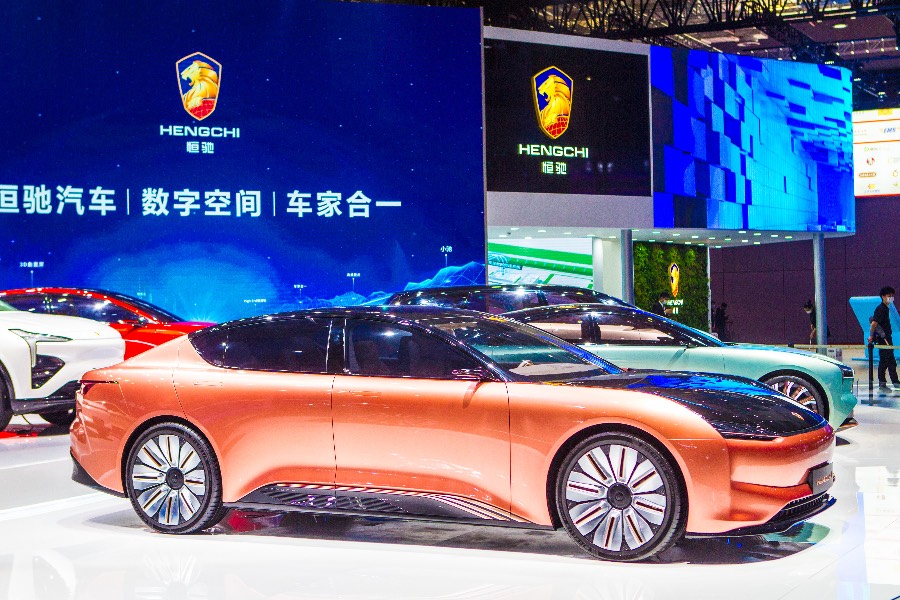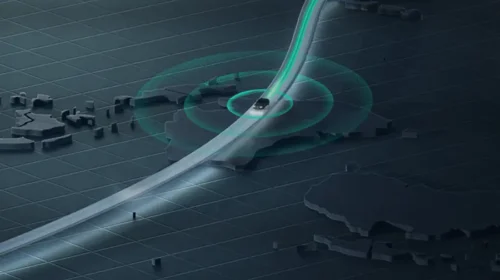Evergrande auto business gets lifeline after problems pile up

China Evergrande has found a potential buyer for its electric car unit, which is mired in debt and has been ordered to repay 1.9 billion yuan in government subsidies, but the prospects for the company are still uncertain
Key Takeaways:
- The Evergrande auto subsidiary landed more than 10 billion yuan in the red last year, with revenue coming mostly from property sales
- If the deal goes through, the new buyer would have to put the struggling car business back on track
By Li Shih Ta
China Evergrande’s electric car business looked to be rapidly running out of road, crippled by heavy losses in a crowded market. But a potential rescue deal has emerged to keep the wheels turning for now.
A survival route for the vehicle subsidiary offers a rare piece of positive news in the long-running saga of the property conglomerate China Evergrande Group (3333.HK), which was ordered into liquidation by a Hong Kong court in January after failing to deliver a restructuring plan.
China Evergrande New Energy Vehicle Group Ltd. (0708.HK) revealed last month that its parent had entered into a provisional agreement, or term sheet, to sell a 29% group stake in the car business to an unnamed third party. The buyer would also get an option to buy further shares in the NEV company to become the outright owner.
The announcement gave no details about the would-be purchaser or the proposed share price.
The Evergrande group is the automotive company’s controlling shareholder, holding roughly 6.35 billion shares or about 58.5% of the total. The parent company holds 130 million shares directly while its wholly owned units Evergrande Health and Acelin Global Limited have about 6.22 billion and 50,000 shares each.
The terms of the agreement, which is non-binding, would give the buyer 3.15 billion shares initially with an option to acquire 3.2 billion more, equivalent to another 29.5% stake.
The market got wind of a potential breakthrough before the news was released. In mid-May, the car company suspended trading in its shares after a 70% intraday rally. After trade resumed, the shares jumped 107% once the deal was announced, closing with a gain of 87% that nearly doubled the market value of the business. After the initial excitement, investors are waiting for due diligence to be completed and the terms to be finalized, after a previous agreement with a Middle East investor fell through earlier this year.
Fresh hope or false start?
The latest suitor has pledged to provide emergency credit for Evergrande NEV to plug what the company described as a serious funding shortage. The credit line would allow the firm to keep operating and develop its business, after its Tianjin plant was idled at the beginning of this year and has yet to gear back up.
Evergrande NEV brought in about 1.34 billion yuan ($187 million) in revenues last year, dwarfed by a 10.87 billion yuan loss attributable to shareholders. Most of its revenue in any case derived from property sales totaling 1.1 billion yuan. In fact, the company has only produced 1,700 EVs in the five years since it was founded. Just 1,389 vehicles have been delivered. By the end of 2023, the cumulative loss had reached 37.69 billion yuan.
The outlook brightened last August when a green technologies group with state backing from the United Arab Emirates stepped in as a potential partner. The NWTN Group pledged a strategic investment of $500 million, to be followed by another 600 million yuan in funding. The market welcomed the news as a lifeline for Evergrande NEV but in April the company announced the agreement had been terminated.
In May another bombshell was dropped. Just four days before revealing the latest deal, Evergrande NEV got a letter from the authorities asking it to repay about 1.9 billion yuan in government incentives and subsidies that were meant to promote the production of energy-efficient vehicles.
How much is the auto unit worth?
An electric vehicle business was once the dream of Evergrande boss Hui Ka Yan. In October 2021, when China Evergrande had just defaulted on its debts, he announced plans to transform the group from a real estate enterprise into a new energy vehicle business within 10 years. The intention was to gradually exit the property market while retaining Evergrande NEV.
With the China Evergrande Group in liquidation and its boss detained as part of a criminal investigation, the auto firm has perhaps the best shot at a viable future outside of the business empire. If the proposed share deal goes through, the founder’s ties to the business will be severed once and for all.
In its heyday, the company enjoyed a market capitalization of HK$700 billion, 40% higher than the value at the time of BYD (1211.HK; 2594.SH), China’s current NEV champion. But the Evergrande unit’s market value has since fallen to just HK$6.2 billion, less than 1% of its peak level.
The company’s annual report put the total value of its assets at about 34.9 billion yuan, but its liabilities were more than double that, at 72.5 billion yuan. For a prospective purchaser, the company is a loss-making concern that did not manage to mass produce its vehicles. The new owner would be taking on a massive debt load. Market-watchers believe the mysterious third party is more likely to be a new entrant looking for a production shortcut rather than an established EV manufacturer.
Despite its many problems, Evergrande NEV benefits from a Hong Kong listing, as well as the credentials and production facilities to produce electric vehicles. With production bases in Tianjin, Guangzhou and Shanghai, it could fire up the assembly lines when funds start to flow.
However, China’s NEV market is in the throes of a fierce commercial battle in which weaker firms are being forced out. Evergrande NEV, with its relative lack of resources and brand recognition, might find itself in a daunting fight even under new ownership.
After getting the first block of shares, the purchaser can test the waters for a while under the credit agreement before deciding whether to exercise the option to buy a controlling stake. That leaves a question mark over whether the deal will be executed as planned or if it could be revised along the way.
To subscribe to Bamboo Works free weekly newsletter, click here





